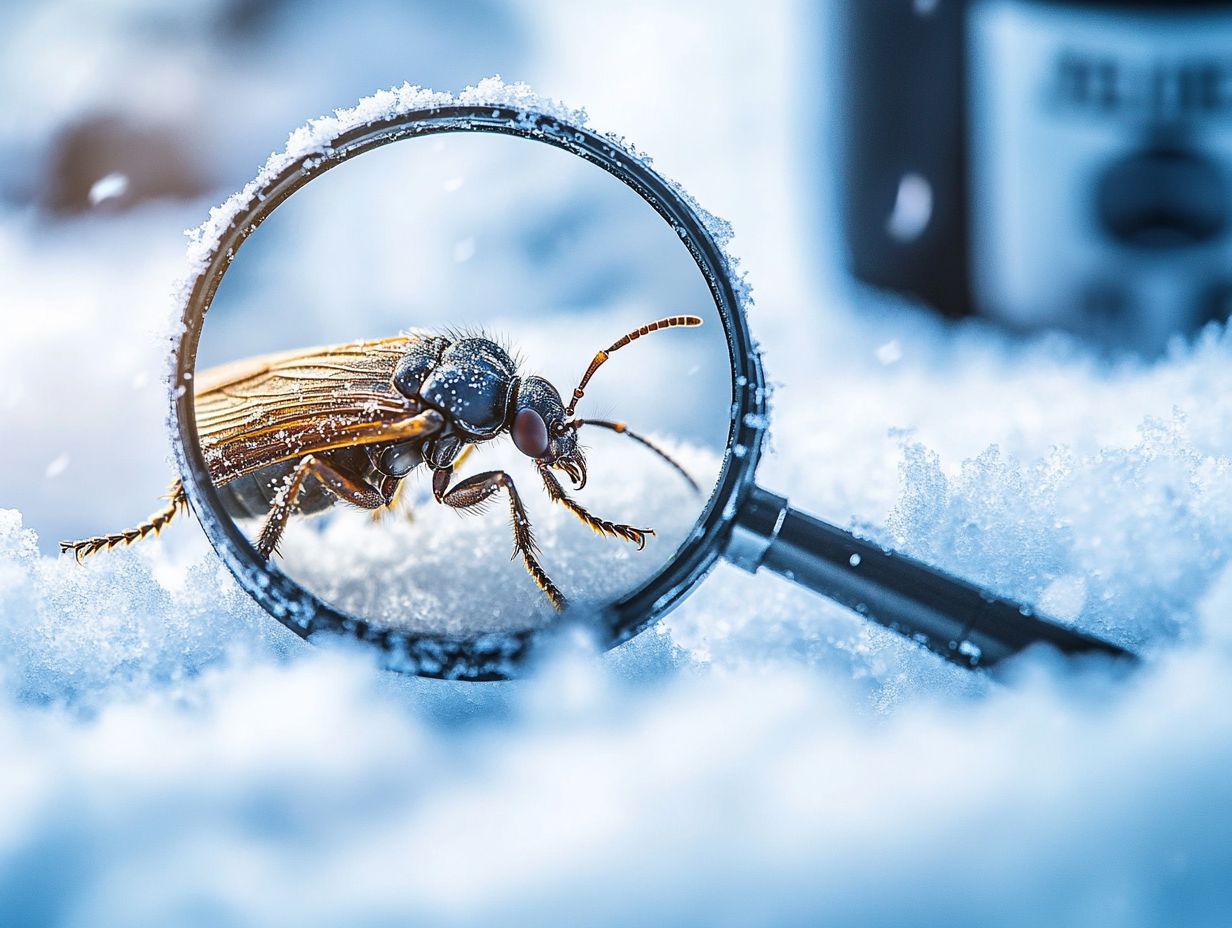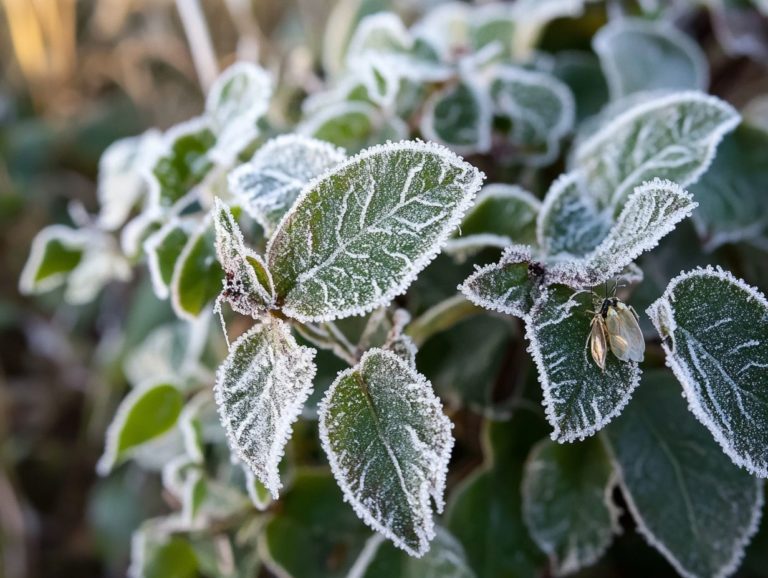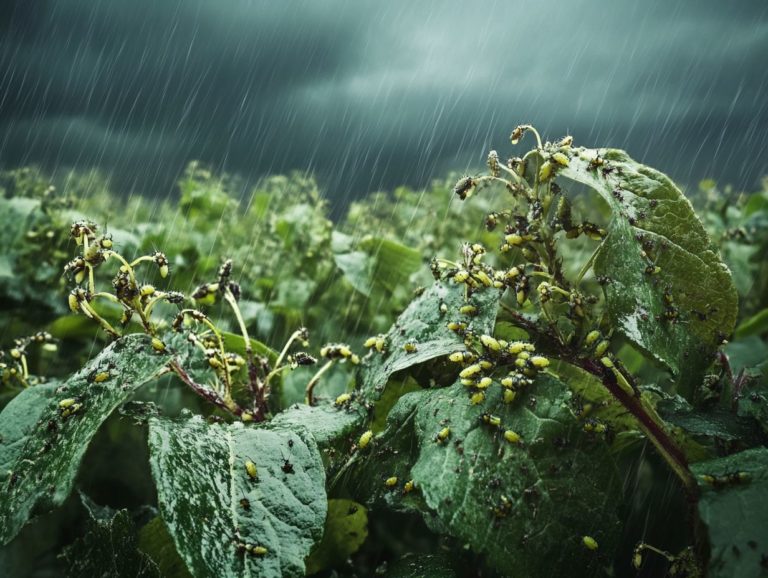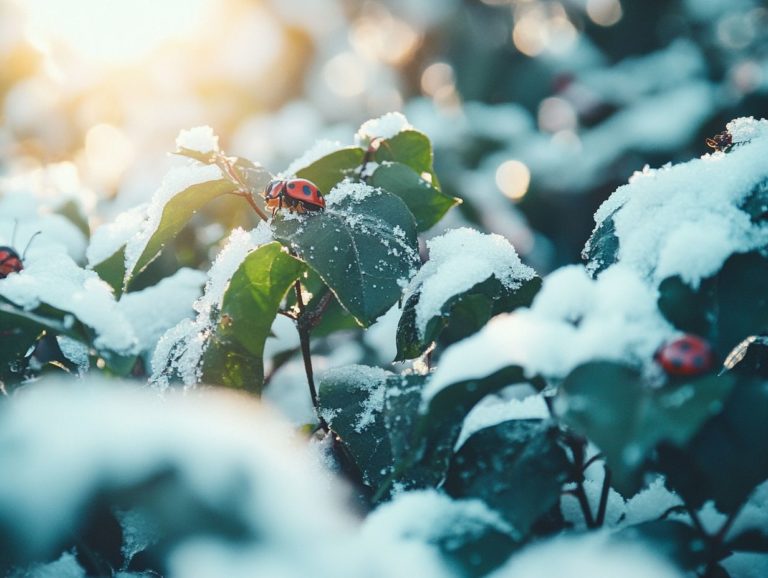Cold-Climate Pest Management Myths Debunked
Navigating pest management in cold climates presents unique challenges. Many believe freezing temperatures eliminate pests, but this is a common myth.
This article sets the record straight on various myths surrounding pest control in frigid environments. It delves into effective strategies tailored for cold weather and offers practical tips for year-round prevention.
Get ready to learn essential tips to keep your home pest-free all year!
It highlights specific pests that manage to thrive despite the chill and shares strategies for tackling them.
Contents
- Key Takeaways:
- Understanding the Unique Challenges
- Common Myths About Pest Management in Cold Climates
- Effective Strategies for Pest Management in Cold Climates
- Preventive Measures for Year-Round Pest Control
- Dealing with Specific Pests in Cold Climates
- Frequently Asked Questions
- What are some common pest myths about pest management in cold climates?
- Are pests really unable to survive in extreme cold temperatures?
- Can I skip pest control measures during the winter months?
- Is it true that DIY pest control methods are enough to handle pest problems in cold climates?
- Do pests only enter homes and buildings during the warmer months?
- Is it true that keeping a clean and tidy home will prevent pests in cold climates?
Key Takeaways:
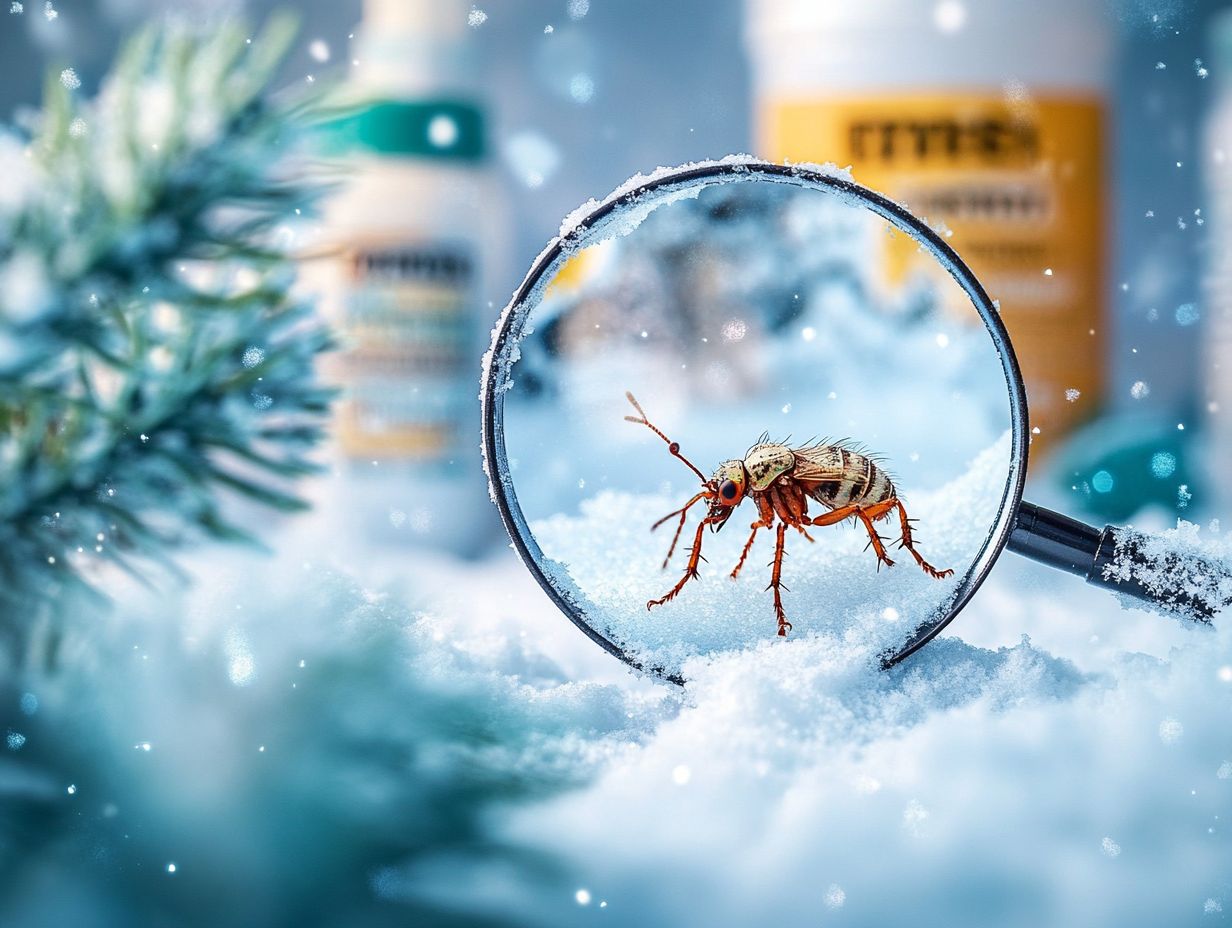
- Cold-climate pest management requires a unique approach due to low temperatures and harsh weather conditions.
- Many common myths surrounding pest management in cold climates have been debunked by experts.
- Effective strategies and proven methods are available for managing and preventing pests in cold climates, along with specific tips for year-round control.
Understanding the Unique Challenges
Understanding the challenges that winter pests present is essential for effective pest control, especially in areas like Omaha and Council Bluffs.
The cold triggers specific behaviors and increased activity among various pests. During winter, many seek refuge in the warmth of your home, leading to a rise in infestations that often necessitate the skills of pest control experts.
By understanding the patterns and survival tactics of winter pests, you can take proactive steps to reduce their numbers and maintain a clean living space, ensuring a pest-free environment all winter long.
Common Myths About Pest Management in Cold Climates
You may encounter several prevalent myths surrounding pest management in cold climates that could hinder your ability to effectively control pests like rodents and insects during winter. Many believe that pests simply hibernate when the temperatures drop, but the reality is that numerous species adapt by seeking warmth and food within human dwellings. To debunk these misconceptions, it’s helpful to explore the top 10 cold-climate gardening soil myths.
This underscores the importance of professional pest control services. Understanding these gardening myths: winter edition is crucial for effective pest management, as it can help you make informed decisions about whether to tackle pest control on your own or enlist the help of trusted exterminators.
Debunking Misconceptions
Debunking misconceptions about pest management is crucial for effectively controlling winter pests. Many people mistakenly believe that cleanliness alone can prevent infestations. While maintaining hygiene and proper food storage certainly helps reduce the attraction for pests, it’s not a foolproof solution—especially in colder climates where pests seek refuge indoors. For comprehensive strategies, consider exploring effective pest control in cold climates.
By understanding the nuances of pest behavior during winter months, you can develop more effective removal strategies and management practices, including insights from understanding pest resistance in cold climates.
In winter, pests like rodents and cockroaches search for warm spots in your home. This leads to more activity inside your living spaces. These pests can find hidden entry points and breed quickly, rendering hygiene efforts insufficient for control. Factors like climate and seasonality can create a false sense of security, causing you to overlook potential infestations.
Therefore, adopting a holistic approach to pest control is essential. This means combining rigorous cleaning measures with professional pest management services to ensure effective prevention and long-term relief from those unwelcome invaders.
Don’t wait for an infestation. Contact your local pest control experts today!
Effective Strategies for Pest Management in Cold Climates
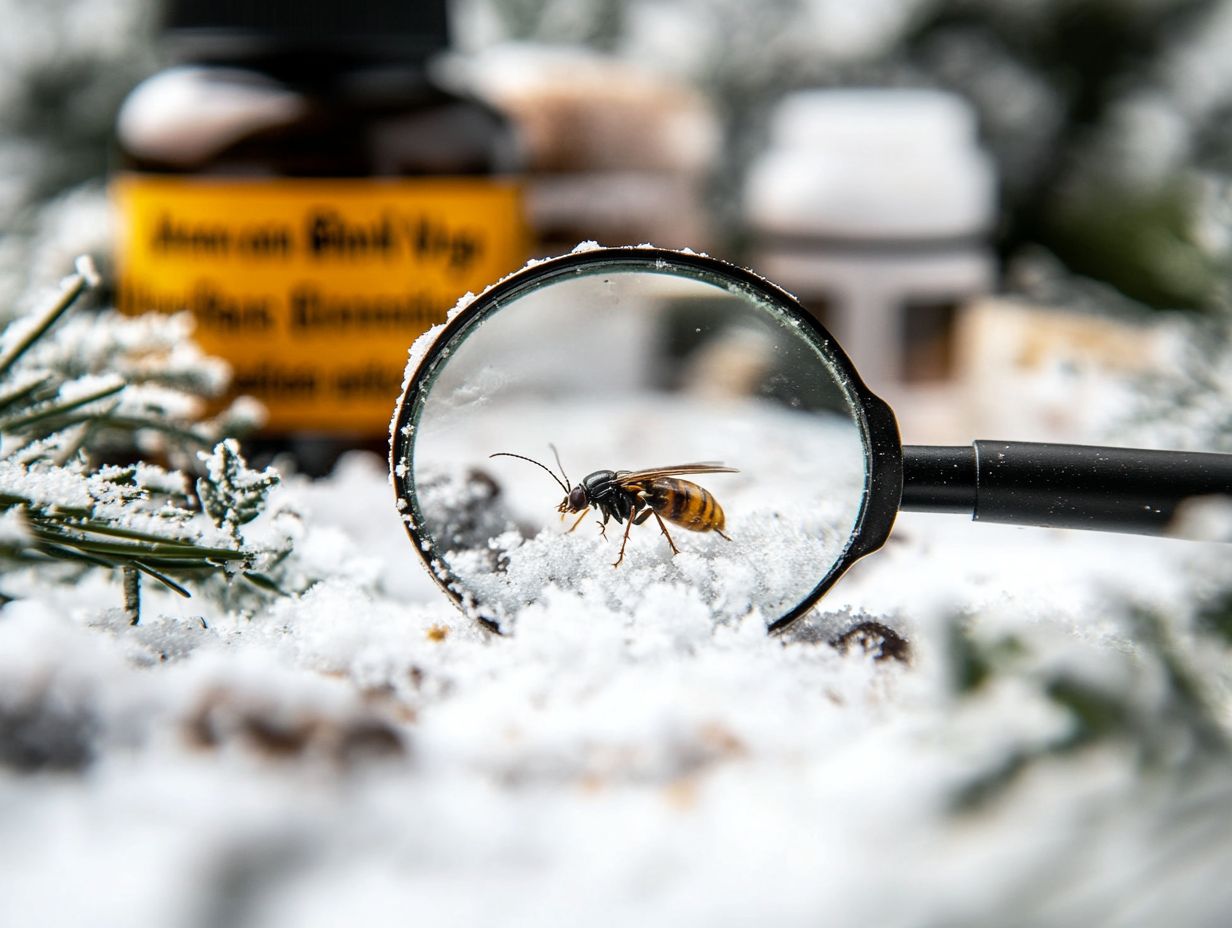
Effective pest management in colder climates is vital for homeowners. In places like Omaha and Council Bluffs, organic pest solutions for cold climates can help address winter pests that may disrupt your home if not managed.
By understanding how winter pests, like rodents and insects, adapt to cold, you can customize your pest control methods effectively.
You can choose to hire professionals or explore natural remedies and ultrasonic devices. Being informed about chemical safety and ongoing maintenance ensures successful pest management throughout winter.
Proven Methods and Techniques
Proven methods for pest control during winter are essential for maintaining a pest-free home. Conduct thorough pest inspections and evaluate your home for vulnerabilities.
Identify potential entry points for pests. Implement preventive measures like sealing gaps and using pest repellents to significantly reduce the risk of infestations.
Employing ultrasonic devices and natural remedies offers effective alternatives to traditional pest management methods. Proactive steps can save you from costly damages and foster a healthier living environment.
Regular inspections allow you to catch emerging problems before they escalate. Integrating consistent preventive practices, like maintaining proper sanitation and eliminating potential food sources, effectively deters pests.
If you’re seeking eco-friendly solutions, consider using natural remedies like diatomaceous earth a natural powder made from tiny fossilized water plants and essential oils. These can repel and eliminate pests while remaining safe for your family and pets.
Blend innovative methods with traditional pest control strategies for a strong defense against those winter invaders, especially by understanding seasonal pest trends in cold climates.
Preventive Measures for Year-Round Pest Control
Implementing preventive measures is crucial for ensuring a pest-free haven in your home. Prioritize cleanliness, practice proper food storage, and recognize what attracts pests to greatly diminish the chances of infestations.
Embrace effective DIY pest control strategies to take charge of pest populations proactively. This helps you sidestep seasonal spikes in pest activity that might arise from fluctuating temperatures and weather changes.
Tips for Keeping Pests at Bay
Keeping pests at bay during winter requires a blend of practical tips and proactive pest control measures. Ensure your home remains a sanctuary from winter invaders.
Simple actions like maintaining cleanliness and storing food properly can significantly reduce the risk of attracting pests. Implement comprehensive pest management strategies for an extra layer of defense.
Start with a regular cleaning routine. Promptly clean up crumbs and spills, which are prime attractants for pests like rodents and ants.
Your storage practices deserve scrutiny too; placing food items in airtight containers can thwart access and mask enticing odors that lure unwanted visitors. Sealing cracks and gaps around windows and doors will help diminish entry points for these pests.
If you re dealing with common winter intruders like cockroaches or mice, consider employing traps to monitor their populations. Scheduling periodic professional inspections can help pinpoint vulnerabilities that could lead to infestations.
Dealing with Specific Pests in Cold Climates
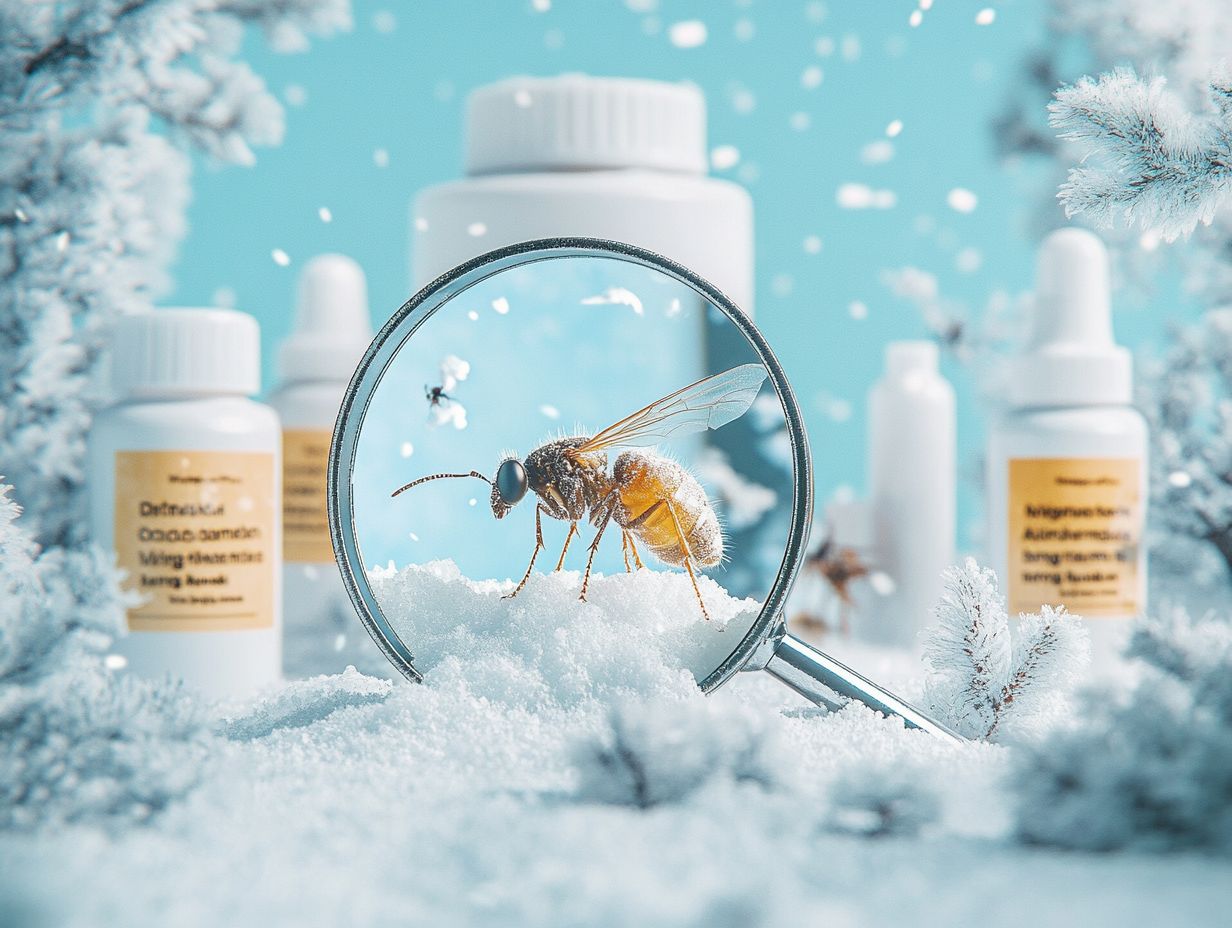
Addressing specific pests in cold climates demands a strategic approach, especially in regions like Omaha and Council Bluffs, where winter pests can trigger substantial infestations. It s essential to grasp the unique behaviors and survival tactics of these pests, particularly rodents and common insects, for effective pest management.
Swift action is often required. Getting professional help may be necessary to ensure that pest populations are thoroughly managed and the associated risks are minimized.
Identifying and Addressing Common Pests
Identifying and addressing common pests during the winter months is crucial for maintaining a pest-free home, especially in areas like Omaha and Council Bluffs. As winter rolls in, common intruders such as rodents and insects often seek refuge within your living spaces.
This makes it imperative for you to conduct thorough pest inspections and call in exterminators when necessary. Recognizing pest activity allows you to implement management strategies. This helps reduce potential risks of infestations.
Keep an eye out for telltale signs like droppings, chewing marks, or nests hidden away in attics and basements. Staying vigilant is key, as pests can inflict damage on your property and pose health risks.
If you notice any signs of infestation, your first step should be a meticulous inspection of your home. Focus on entry points around doors, windows, and utility lines.
If you confirm pests, act fast! Call a professional pest control service to eliminate them effectively. Tackling winter pests promptly not only safeguards your home but also fosters a healthier living environment for you and your loved ones.
Frequently Asked Questions
-
What are some common pest myths about pest management in cold climates?
Some common myths include the belief that pests cannot survive harsh winters and that homes are automatically protected from pests due to cold temperatures. To learn more, check out winter gardening myths debunked.
-
Are pests really unable to survive in extreme cold temperatures?
Contrary to popular belief, many pests, including rodents, can survive in cold climates by finding warm, sheltered areas inside homes. They can also adapt to colder temperatures by entering a state of winter dormancy or producing antifreeze compounds in their bodies.
-
Can I skip pest control measures during the winter months?
No, pests can still be active and cause problems during winter. It’s important to continue pest management practices, including routine inspections and preventive measures, to keep your home safe and healthy.
-
Is it true that DIY pest control methods are enough to handle pest problems in cold climates?
While DIY methods may seem effective, they often only treat visible signs of an infestation and not the root cause. It’s best to consult a professional pest control service for thorough and long-lasting results, especially for persistent pests like bed bugs or termites.
-
Do pests only enter homes and buildings during the warmer months?
Pests can enter homes at any time of the year, including winter. They may be seeking shelter from the cold or searching for food. It’s important to pest-proof your property year-round to prevent infestations.
-
Is it true that keeping a clean and tidy home will prevent pests in cold climates?
While a clean home is important for pest prevention, it is not a foolproof method. Pests can still enter through small cracks, so sealing entry points and addressing moisture issues are also crucial.
For ongoing maintenance and peace of mind, consider contacting a pest control service regularly.

